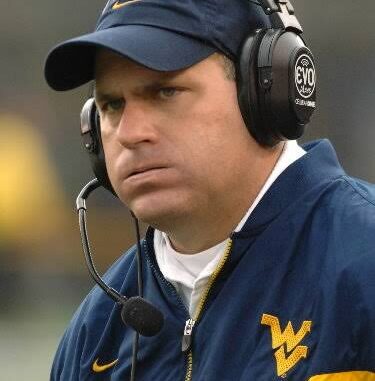
NEGATIVE AND POSITIVE ASPECTS OF RICH RODRIGUEZ’S TENURE AT WEST VIRGINIA, IN LIGHT OF NCAA VIOLATIONS AND FOOTBALL SUCCESS
Rich Rodriguez is a name that resonates deeply within college football, particularly at West Virginia University (WVU), where he served as head coach from 2001 to 2007. His legacy is complex—marked by both outstanding on-field accomplishments and, later, NCAA violations that cast a shadow over his achievements. In 2024, the NCAA placed West Virginia’s football program on a two-year probation for recruiting violations committed during the tenures of former coaches Rich Rodriguez and Bill Stewart. This situation underscores both the positive and negative aspects of Rodriguez’s impact at WVU.
Positive Contributions:
Rodriguez transformed the West Virginia football program during his tenure. Taking over in 2001, he initially struggled but soon established WVU as a national powerhouse. His revolutionary spread offense turned the Mountaineers into one of the most dynamic and exciting teams in college football. Under Rodriguez, WVU won four Big East titles and posted three consecutive 11-win seasons from 2005 to 2007. This period included a signature victory over Georgia in the 2006 Sugar Bowl, solidifying the program’s elite status and giving fans a renewed sense of pride.
His tenure also helped elevate the program’s recruiting profile. He brought in high-impact players like quarterback Pat White and running back Steve Slaton, who thrived in his offensive system. The national exposure and rankings WVU enjoyed under Rodriguez led to increased revenue, higher attendance, and improved facilities. His success helped set the stage for West Virginia’s eventual move to the Big 12 Conference, enhancing its national relevance.
Negative Impact and NCAA Violations:
However, success came with oversight failures. The NCAA’s 2024 investigation revealed that recruiting violations occurred under Rodriguez’s leadership, including impermissible contact with recruits and coaching staff involvement in activities that broke NCAA rules. Although Rodriguez had left WVU in 2007 for the University of Michigan, the violations were traced back to his administration, indicating lapses in compliance and program oversight.
These violations contributed to the university receiving two years of probation, including recruiting restrictions and a fine. While the NCAA did not impose a postseason ban, the sanctions tainted the program’s image and legacy of the Rodriguez era. Furthermore, the controversy surrounding his departure to Michigan—leaving before WVU’s 2008 Fiesta Bowl appearance—left many fans and administrators feeling betrayed, which only amplified the criticisms.
Beyond the violations, critics argue that Rodriguez’s intense focus on innovation and winning may have contributed to a culture where rules were bent or ignored. His time at WVU, while wildly successful, may have prioritized performance over compliance, a balance that elite programs must constantly manage.
Conclusion:
Rich Rodriguez’s tenure at West Virginia was a defining era for the football program. He brought success, innovation, and national attention to Morgantown. However, the recent probation stemming from violations during his leadership also highlights the darker side of that success. The duality of his legacy—excellence on the field and lapses off it—serves as a cautionary tale about the costs of cutting corners in college athletics. As WVU moves forward under probation, it must reckon with Rodriguez’s legacy as both a builder and a cautionary figure in Mountaineer history.



Be the first to comment